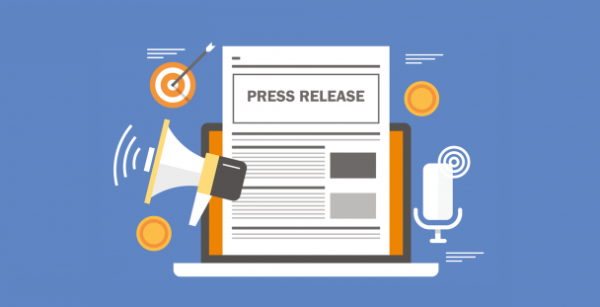Tax experts try to clear up Statutory Sick Pay misinformation
The Low Incomes Tax Reform Group is highlighting that there is a lot of well-meaning but incorrect information about Statutory Sick Pay on the internet and it is important that people use trusted sources to confirm their position.

Emergency legislation (backdated to 13 March 2020) has been passed which allows Statutory Sick Pay (SSP) to be paid from the first day of sickness absence, rather than the fourth day, for people who have COVID-19 or have to self-isolate, in line with official guidance.1
SSP (currently £94.25 per week, going up to £95.85 from 6 April) is available for people who are an 'employed earner' (basically those who are working for an employer who has a liability to pay National Insurance for them) and who earn an average of at least £118 per week. The earnings taken into account are broadly the average weekly earnings for the prior eight weeks. People who earn less than £118 (£120 from 6 April) per week or who are self-employed (including those treated as self-employed for tax purposes by their engager) are not entitled to SSP.
Victoria Todd, Head of LITRG, said:
"In response to increasing numbers of incorrect articles and commentary on SSP provision in relation to the coronavirus crisis, the Low Incomes Tax Reform Group would like to clarify that:
- SSP, as things stand, is payable to people who cannot work because they have to self-isolate in accordance with government guidance. The government guidance (as at 24 March 2020) on isolation is limited to those who have symptoms or those who live with someone who has symptoms.
- Currently the legislation does not appear to extend to people who cannot work because they fall within the 'social distancing' or ‘shielding’ measures etc. But we are discussing this with HMRC.
- The £118 per week limit, is per job. You cannot amalgamate earnings over two or more jobs to see if you meet the limit (unless those jobs are with the same employer). On the other hand, if you have two or more jobs and earn at least £118 in both – you can get SSP from both employers.
- SSP is not a ‘worker’ employment law right but rather one that is tied to whether secondary Class 1 National Insurance is payable. This means that agency workers, temporary workers and casual workers who pay their tax and NIC under PAYE may qualify, whereas those in self-employment (even if it is 'dependent' self-employment) will not qualify, as they do not pay Class 1 NIC.
- To qualify for SSP you must have done some work under your contract (even if this is just a few hours' worth). This means that if you are in a new job – you may qualify for SSP even if you have not been paid yet.
- Zero hours contract workers who pay their tax and NIC under PAYE may qualify - provided they have done some work under their contract. Zero hours contract workers who have not yet done any work under their contract, will not be entitled to SSP.
- Part-time workers who earn at least £118 per week, qualify for SSP at the normal full weekly rate – they do not receive a pro rata amount. So, someone who is self isolating for two weeks and who normally works five days a week should get £188.50 in total. Someone who is self isolating for two weeks and who normally works three days a week should also get £188.50 in total.
- SSP is payable until your period of illness/self-isolation ends or until your contract ends (if earlier). Agency workers should be aware that if they have less than three months continuous service, then SSP is only payable to the end of any agreed assignments."
LITRG is pointing out that technical guidance to help employers understand the rules in complex or unusual situations, such as where they have a new employee without eight weeks of service, or where they cease to trade or become insolvent, is available on Gov.UK2 and in HMRC's statutory payments manual.3
Victoria Todd continued:
"In the first instance, employees should ask their employers for SSP if they think they are entitled to it (agency workers should ask their agency, unless they work through an umbrella company, in which case they should ask their umbrella company). They should be able to get an isolation note, if they need one, from the recently launched online facility.4 But please remember that for the first seven days off work, employees can self-certify, so they do not need any evidence for their employer.
'We would also like to advise people who think that SSP is due but whose employers have refused to pay SSP, to contact the HMRC statutory payment dispute team on 03000 560 630."
Notes for editors:
1. www.gov.uk/coronavirus
2. www.gov.uk/government/collections/statutory-pay
3. www.gov.uk/hmrc-internal-manuals/statutory-payments-manual
4. www.gov.uk/government/news/online-isolation-notes-launched-providing-proof-of-coronavirus-absence-from-work
5. Low Incomes Tax Reform Group
The LITRG is an initiative of the Chartered Institute of Taxation (CIOT) to give a voice to the unrepresented. Since 1998 LITRG has been working to improve the policy and processes of the tax, tax credits and associated welfare systems for the benefit of those on low incomes.
The CIOT is the leading professional body in the United Kingdom concerned solely with taxation. The CIOT is an educational charity, promoting education and study of the administration and practice of taxation. One of our key aims is to work for a better, more efficient, tax system for all affected by it – taxpayers, their advisers and the authorities. The CIOT’s work covers all aspects of taxation, including direct and indirect taxes and duties. The CIOT’s 19,000 members have the practising title of ‘Chartered Tax Adviser’ and the designatory letters ‘CTA’, to represent the leading tax qualification.
